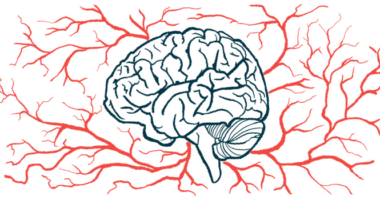My Son’s First Evaluation at the Behavioral Health Clinic Goes Smoothly

Last week, my 4-year-old son, Cayden, had a telehealth appointment with a pediatric psychologist. She works in the behavioral health clinic at the children’s hospital where we take Cayden for all his other specialists.
The appointment was recommended by his metabolic doctor, whom we see every three to four months for Pompe clinic days. Cayden’s metabolic team sees him solely for his infantile-onset Pompe disease. However, at his last appointment, they wanted him to be evaluated by a psychologist to make sure that he’s on track with his neurological development.
I don’t have any concerns with Cayden’s development at this time. But I think it’s beneficial to get things checked out and make sure the doctors don’t have any concerns, either.
During the telehealth appointment, the psychologist asked a multitude of questions. Most were related to Cayden’s behaviors and skills. I also shared concerns I have about some of Cayden’s behaviors.
One thing I’ve noticed that Cayden does a lot is interrupt me when I’m talking. While this is typical for most children his age, it seems like he does it a bit excessively. Almost anytime I try to talk when Cayden is around, he’ll interrupt me by repeating “Mom.” He’ll also tap me to try to get my attention if he is sitting close by. I usually have to focus my attention on him multiple times during a conversation with someone else, because he just won’t stop interrupting me.
Another thing I’ve noticed is that Cayden grows extremely jealous of other children and what they’re doing. If my younger siblings are around and they have a toy that Cayden thinks is cool, he’ll beg for it and throw a fit if he can’t have it. During his fits, he’ll throw his entire body around while screaming and crying. Although my siblings typically share their toys with him, they are children, after all, and don’t always want to. I would never force them to share their toys, either, because Cayden isn’t always willing to share his toys with them.
These behaviors aren’t too concerning to the psychologist or me. However, she did say that there are ways we can work on these specific behaviors to try to prevent them from happening. This would be helpful since we are planning to put Cayden back in preschool this fall. But she wants to see Cayden in person first and have a formal evaluation with him before giving any official recommendations.
We scheduled an in-person appointment with the psychologist in July, which usually takes about two hours. I’m anxious to see how it goes. She will have me fill out paperwork while she performs certain tests and tasks with Cayden in another room.
Cayden doesn’t always like to be away from me, especially at the doctor’s office. He gets a bit anxious, which is expected, considering all of the scary hospitalizations and appointments he’s had throughout his life. I’ll encourage him to complete the tests and tasks for her because I’m hoping to get some good feedback.
All in all, I think that being seen by staff at the behavioral health clinic will be beneficial. It’s not something I’ve ever thought of pursuing for Cayden previously, but I’m glad his metabolic team suggested it.
Note: Pompe Disease News is strictly a news and information website about the disease. It does not provide medical advice, diagnosis, or treatment. This content is not intended to be a substitute for professional medical advice, diagnosis, or treatment. Always seek the advice of your physician or other qualified health provider with any questions you may have regarding a medical condition. Never disregard professional medical advice or delay in seeking it because of something you have read on this website. The opinions expressed in this column are not those of Pompe Disease News or its parent company, BioNews, and are intended to spark discussion about issues pertaining to Pompe disease.







Comments